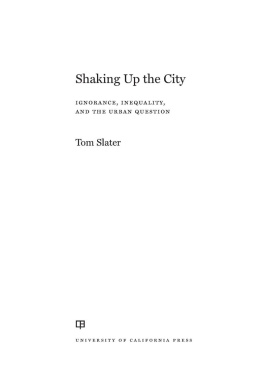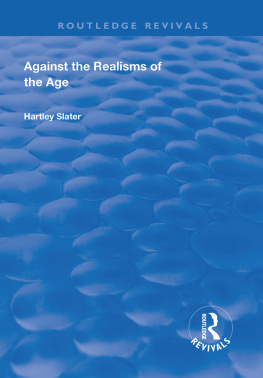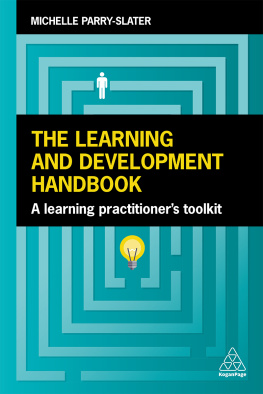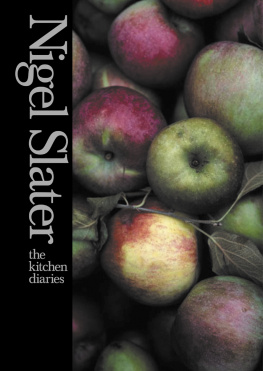Don Slater [Slater - New Media, Development and Globalization: Making Connections in the Global South
Here you can read online Don Slater [Slater - New Media, Development and Globalization: Making Connections in the Global South full text of the book (entire story) in english for free. Download pdf and epub, get meaning, cover and reviews about this ebook. year: 2014, publisher: Wiley, genre: Politics. Description of the work, (preface) as well as reviews are available. Best literature library LitArk.com created for fans of good reading and offers a wide selection of genres:
Romance novel
Science fiction
Adventure
Detective
Science
History
Home and family
Prose
Art
Politics
Computer
Non-fiction
Religion
Business
Children
Humor
Choose a favorite category and find really read worthwhile books. Enjoy immersion in the world of imagination, feel the emotions of the characters or learn something new for yourself, make an fascinating discovery.

- Book:New Media, Development and Globalization: Making Connections in the Global South
- Author:
- Publisher:Wiley
- Genre:
- Year:2014
- Rating:4 / 5
- Favourites:Add to favourites
- Your mark:
- 80
- 1
- 2
- 3
- 4
- 5
New Media, Development and Globalization: Making Connections in the Global South: summary, description and annotation
We offer to read an annotation, description, summary or preface (depends on what the author of the book "New Media, Development and Globalization: Making Connections in the Global South" wrote himself). If you haven't found the necessary information about the book — write in the comments, we will try to find it.
Don Slater [Slater: author's other books
Who wrote New Media, Development and Globalization: Making Connections in the Global South? Find out the surname, the name of the author of the book and a list of all author's works by series.
New Media, Development and Globalization: Making Connections in the Global South — read online for free the complete book (whole text) full work
Below is the text of the book, divided by pages. System saving the place of the last page read, allows you to conveniently read the book "New Media, Development and Globalization: Making Connections in the Global South" online for free, without having to search again every time where you left off. Put a bookmark, and you can go to the page where you finished reading at any time.
Font size:
Interval:
Bookmark:
Table of Contents
For my three girls Jo, Bella and Rosa without whom this book might have been finished years ago but life wouldn't have been so much fun.
And for Eileen Cadman (19502013): author, editor, intellectual, feminist, gardener, astrologer, etc.

Copyright Don Slater 2013
The right of Don Slater to be identified as Author of this Work has been asserted in accordance with the UK Copyright, Designs and Patents Act 1988.
First published in 2013 by Polity Press
Polity Press
65 Bridge Street
Cambridge CB2 1UR, UK
Polity Press
350 Main Street
Malden, MA 02148, USA
All rights reserved. Except for the quotation of short passages for the purpose of criticism and review, no part of this publication may be reproduced, stored in a retrieval system, or transmitted, in any form or by any means, electronic, mechanical, photocopying, recording or otherwise, without the prior permission of the publisher.
ISBN-13: 978-0-7456-3832-4
ISBN-13: 978-0-7456-3833-1 (pb)
ISBN-13: 978-0-7456-7982-2 (epub)
ISBN-13: 978-0-7456-7981-5 (mobi)
A catalogue record for this book is available from the British Library.
The publisher has used its best endeavours to ensure that the URLs for external websites referred to in this book are correct and active at the time of going to press. However, the publisher has no responsibility for the websites and can make no guarantee that a site will remain live or that the content is or will remain appropriate.
Every effort has been made to trace all copyright holders, but if any have been inadvertently overlooked the publisher will be pleased to include any necessary credits in any subsequent reprint or edition.
For further information on Polity, visit our website: www.politybooks.com
Acknowledgements
This book draws on many partnerships and conversations, formal and informal, because of its roots in numerous collaborative research projects and because of its over-long gestation.
Firstly, being so project-based, there are funders and co-workers to whom I am indebted. More specific acknowledgements are made in context, but overall the research projects on which I've drawn are as follows:
- US/UK (19967): Sexpics trading on IRC (self-funded).
- Trinidad (19982000): Daniel Miller (UCL) and Don Slater (LSE). Travel funded by the University of London; the rest by credit card debt.
- Sri Lanka (2002): Monitoring and Evaluation of Kothmale Community Radio and Internet Centre. Lead researchers: Don Slater (LSE), Jo Tacchi (QUT), Peter Lewis (LSE). Funded by the Department for International Development; research conducted under the auspices of UNESCO. Particular thanks are due to Wijayananda Jayaweera (UNESCO) and the main researchers, Lasanthi Daskon and Tanya Notley.
- ictPR (ICTs for Poverty Reduction) (20024): Lead researchers: Don Slater (LSE), Jo Tacchi (QUT); project co-ordinator, Ian Pringle. Funded and implemented by UNESCO. Particular thanks are again due to Mr Jayaweera for his exceptional leadership of this seriously brave programme, to the research co-ordinator Savithri Subramanian, and to the enormously enterprising and hardworking researchers on that programme. The latter are listed and acknowledged in the table of ictPR projects in .
- Information Society (comparative ethnographies of ICTs and poverty reduction) (20035): Lead researchers: Don Slater (Ghana), Jo Tacchi (India), Daniel Miller (Jamaica), Andrew Skuse (South Africa). Funded by the Department for International Development. The present book draws exclusively on the Ghana ethnography, which I conducted in partnership with Dr Janet Kwami. My then doctoral students, Dr Jenna Burrell and Dr Matti Kohonen, were conducting their fieldwork in Accra at same time and I benefited enormously in conversation, ideas, contacts and medical care from this rare experience of actually being in the field with students.
- Asturias, Spain (2007): Cultural Maps and Cultural Development: A Study of Youth Culture, Technology and Cultural Policy. Lead researchers: Don Slater (LSE) and Tomas Ariztia-Larrain (LSE). Funded by CCON and administered through EnterpriseLSE.
- OLPC, Uruguay (2009present): As referenced in , I have benefited greatly from supervising the fieldwork and doctoral research of Daiana Beitler from about 2009 onwards; I also benefited greatly from related visits to Montevideo to put together a large research programme there which, though ultimately unsuccessful, was a very important learning experience for me.
Secondly, there are many friends and colleagues with whom I have discussed aspects of this work over the years; to avoid getting too effusive I'll name just a few who have had the most direct formative influence on this book: Daniel Miller, Jo Tacchi, Nick Couldry and Jo Entwistle.
Thirdly, I have been blessed with some fabulous Ph.D. students who have played a huge role in my intellectual development (whatever my role in theirs) during the writing of this book; amongst those who have had the most direct impact are several who are explicitly cited in the text as collaborators as well as interlocutors: I am massively indebted to Tomas Ariztia-Larrain, Daiana Beitler, Jenna Burrell and Lena Simanyi for key aspects of this book; but I would also specifically like to acknowledge Oriana Bernasconi and Sandy Ross for particularly challenging and important conversations that have really helped me figure things out. I would also like to acknowledge several years' worth of my MSc Culture and Society students on whom I piloted many of these arguments and stories, and whose critical responses have been more formative than they might have realized.
Finally, I want to acknowledge the role of three of my oldest friends, none of them academics Mike Hughes, Andy Moye and the late Eileen Cadman in forming and challenging the ways I make sense of life in conversations that now go back over thirty years.
Introduction: Frames and Dialogues
Over the past few decades, the three terms in my title new media, development and globalization have fused into a holy trinity through which people increasingly organize and act upon their beliefs about the future. Individually, each term invokes cosmologies that structure our conceptual and practical universes around fundamental aspects of life: communication and mediation (new media); social change over historical time (development); and connectedness at different spatial scales (globalization). They are also so tightly interwoven that each term appears as both manifestation and cause of the other two: new media (or ICTs or digital culture or cognate terms) are understood as inherently globalizing and as constituting the inevitable informational future for social development; development is normatively, even commonsensically, narrated as a transition to unimpeded and technically enabled global information flows and associated forms of organization and sociality (networks); and globalization designates an informational reconstitution of space and connection that is often taken for granted as describing our collective socio-economic future.
Together they make a compelling and seemingly irrefutable case about the way the world is going within which everyone must position themselves, as if people everywhere were adapting to an altered natural habitat: individuals, households, communities, nations, the globe, have been set, as their fundamental tasks, the need to comprehend these changes, to imagine the new agencies and qualities that will emerge from them and, on the basis of these knowledges and desires, to forge strategies for surviving or advancing or developing. These interlinked processes are confronted as dangers and threats, as challenges, as opportunities, even as final solutions to the problems previously posed by unequal development or capitalism or pre-modern techno-cultures. In all of these cases, however, these interlinked terms have come to be understood in a thoroughly realist mode whereby they provide the analytical frameworks in and through which people are to organize social thought and action. More concretely, as academics who are researching and teaching this stuff, we are channelled into operating within containers labelled new media, development and globalization, and their interweaving, in our production and circulation of new knowledges.
Next pageFont size:
Interval:
Bookmark:
Similar books «New Media, Development and Globalization: Making Connections in the Global South»
Look at similar books to New Media, Development and Globalization: Making Connections in the Global South. We have selected literature similar in name and meaning in the hope of providing readers with more options to find new, interesting, not yet read works.
Discussion, reviews of the book New Media, Development and Globalization: Making Connections in the Global South and just readers' own opinions. Leave your comments, write what you think about the work, its meaning or the main characters. Specify what exactly you liked and what you didn't like, and why you think so.












